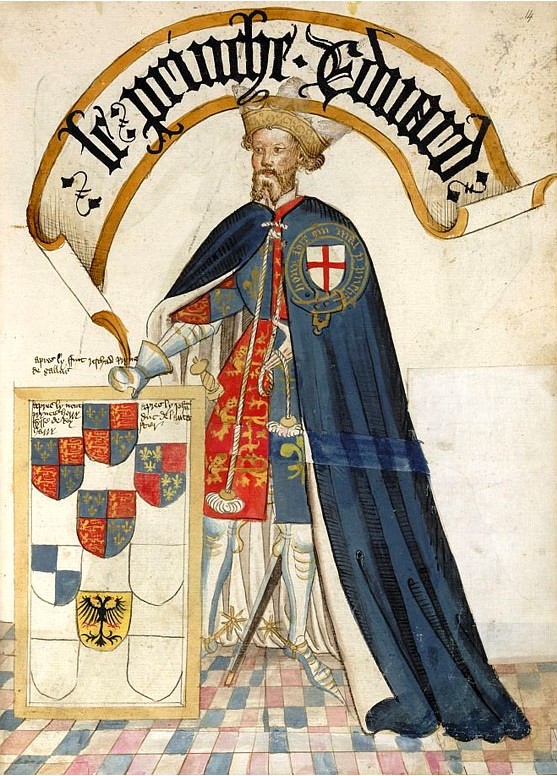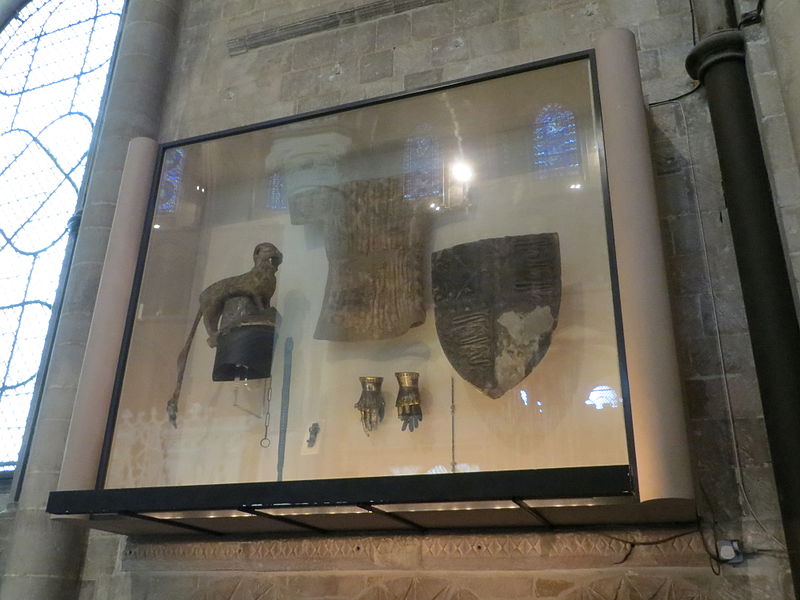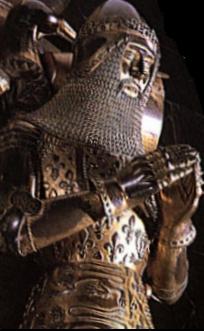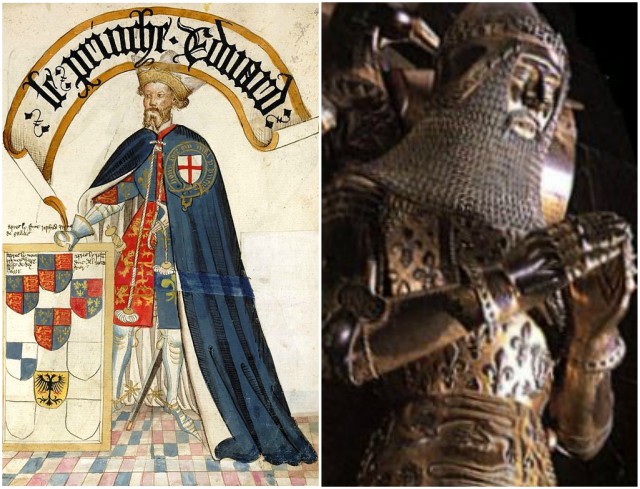Edward the Black Prince, also known as Edward of Woodstock (after his place of birth) was born on June 15th, 1330, at Woodstock Palace in Oxfordshire. He was the eldest son of Edward III and Philippa of Hainaut.
On March 18th, 1333, he was entitled Earl of Chester before his third birthday, four years later as the Duke of Cornwall, and the Prince of Wales when he was 13. When he was only 15-years-old he was knighted by his father and became the first Knight of the Garter.

One year later he helped his father win the Battle of Crecy against the French commanding the right wing of the English forces. It is believed that during this battle he obtained the name”the Black Prince,” most probably because he wore black armor, but another theory runs that Edward’s nickname refers to the cruelty he inflicted upon the French during the Hundred Years War.
He took part in his father’s expedition to Calais in 1349, and in 1355, he was appointed his father’s lieutenant in Gascony. The following year in September the Battle of Poitiers started between the Black Prince and John II, King of France. There the Black Prince won his greatest victory, capturing the French king, Jean II, and his youngest son on September 19th.
At the age of 31, he married his 33-years-old cousin Joan, Countess of Kent in October 1361. She was the daughter and heiress of Edmund Plantagenet, Earl of Kent and granddaughter of Edward I. The couple had two children, Edward of Angouleme born in 1365, and Richard of Bordeaux, later Richard II, who was born on 6th January 1367.

On July 19th, 1362, the Black Prince was entitled as the prince of Aquitaine and Gascony by his father and went to live in his new French domains together with his wife. The court in Aquitaine where the Black Prince served as the king’s representative was considered among the most fashionable of the time.

He assisted Don Pedro of Castile, who had been deprived of his throne by Henry of Trastamare with French aid in 1367 in order to help him recovering his throne. With an army of 30,000 men, he won a classic victory at Najera on April 3rd, 1367, but the campaign ruined his health, finances, and any prospect of a sound ruling in Aquitaine. As a result, the Black Prince became bankrupted.
On the advice of his physician, the Black Prince was forced to return to England in 1371 due to health problems.

He formally surrendered his principality to his father in October 1372 and began actively to take part in the English interior affairs.
His health deteriorated continuously and on June 8th, 1376, the Black Prince died at Westminster Palace aged 45. He was buried in great splendor in the Canterbury Cathedral.
